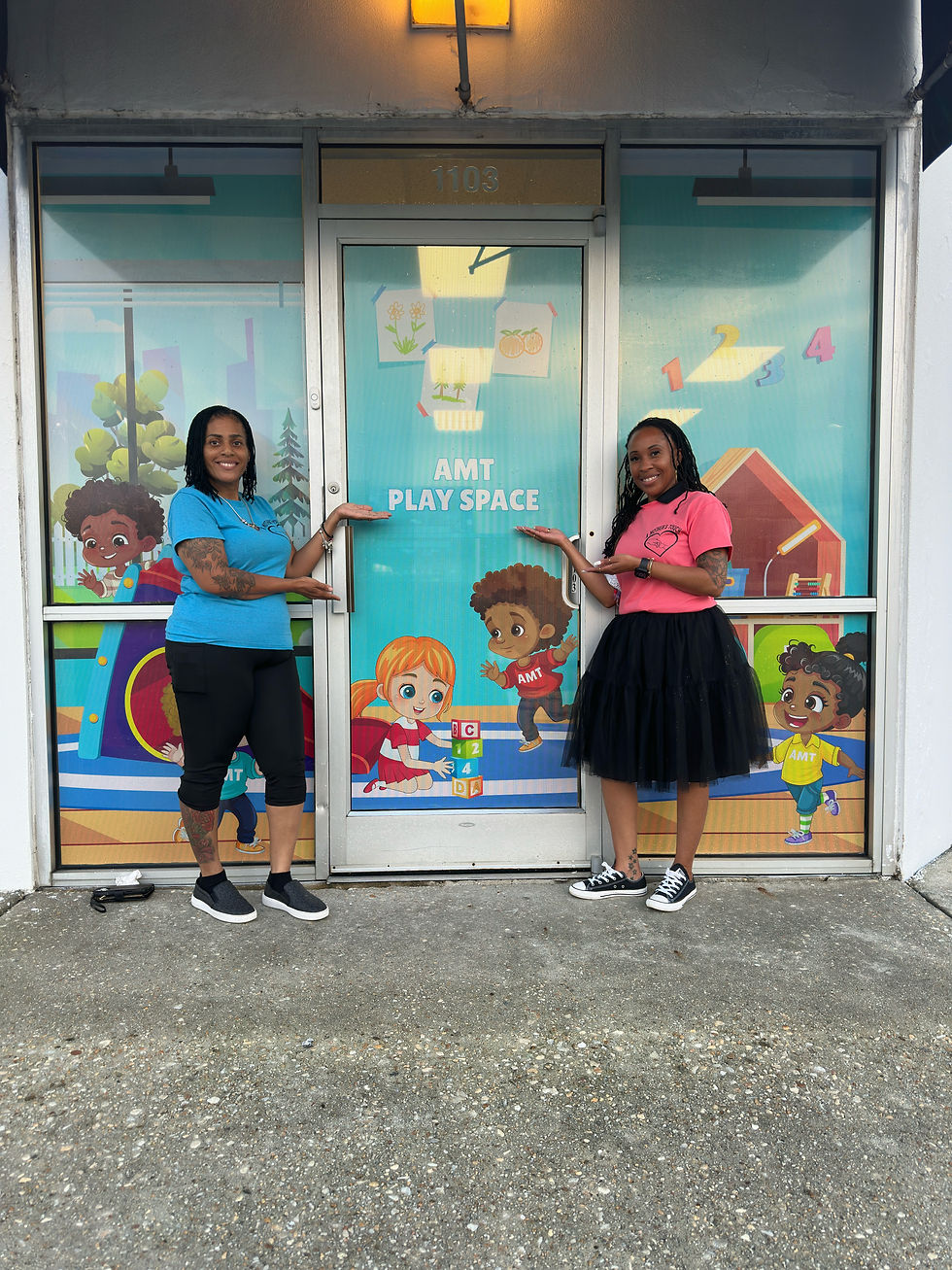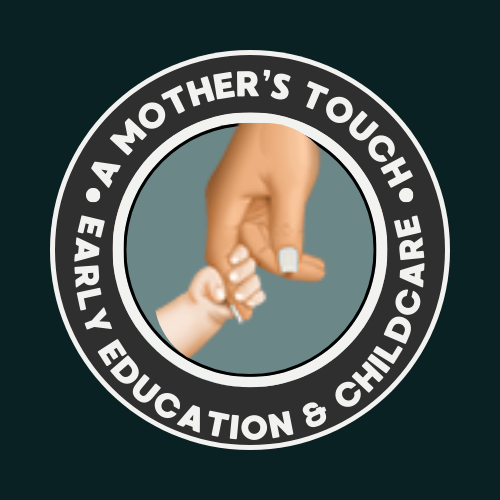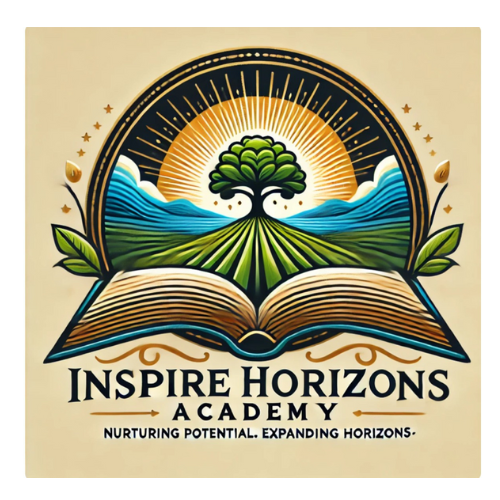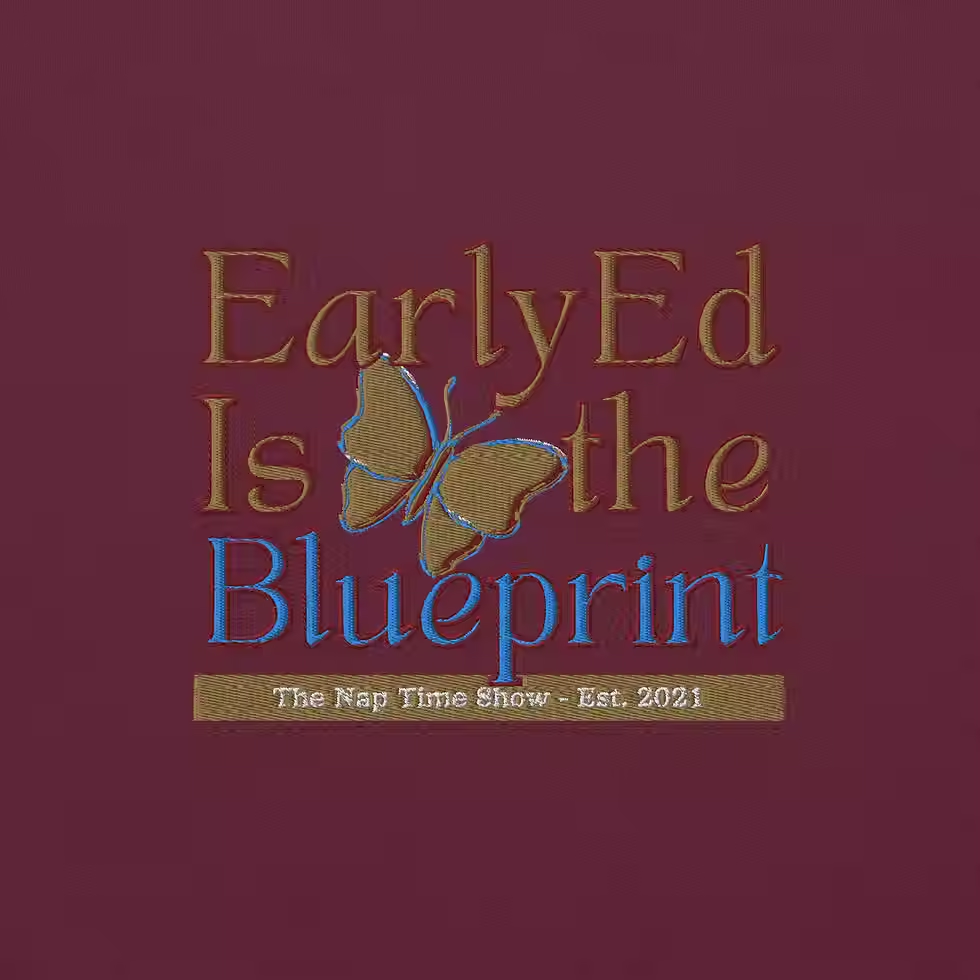Building Bridges: How Two Visionary Educators Are Transforming Early Childhood Care
- The Nap Time Show

- Aug 4, 2025
- 5 min read
Meet Brook Fletcher and Starr Mastrodonato, the powerhouse duo behind A Mother's Touch Early Education and Inspire Horizons Academy, who are redefining what it means to truly support children and families in early education.

In a world where early childhood educators are often seen as "just watching kids," Brook Fletcher and Starr Mastrodonato are on a mission to change that narrative entirely.
As the dynamic founders of A Mother's Touch Early Education and Child Care Services (AMT) and Inspire Horizons Academy (IHA), they're proving that early education isn't preparation for real learning—it is real learning.
Brook, with her doctorate in Child Development, brings deep expertise in creating nurturing, developmentally rich environments. Starr, as Co-Founder and Executive Director, leads with bold vision and an unwavering sense of civic duty, working to dismantle systemic barriers in early education and behavioral health. Together, they've built something extraordinary: sister programs with a shared soul that center the child and surround them with support.
A Vision Born from Love and Necessity
The story of A Mother's Touch began with a simple yet profound belief: early education should be deeply human, culturally responsive, and grounded in love. What started as a vision to create a safe, enriching environment for young children in their community quickly evolved into something much larger.
"We wanted to support every part of a child's development: intellectual, emotional, and social," Brook explains. When they recognized an urgent gap in care and services for neurodivergent children, Inspire Horizons Academy was born as a natural extension of their mission.
The result? When families walk through their doors, they don't just find childcare. They find a village. A place where children can thrive and parents feel deeply connected to the process, seen, empowered, and held.
More Than Compliance: A Philosophy of Connection
At the heart of their approach lies a commitment to whole-child development that goes far beyond traditional metrics. Their work is deeply rooted in trauma-informed care, the Pyramid Model for social-emotional development, and the fundamental belief that behavior is communication.
"At Inspire Horizons, we use evidence-based practices from Applied Behavior Analysis (ABA), layered with strengths-based learning, inclusive classroom design, and empathy-led instruction," Starr shares. But their approach is about so much more than methodology—it's about creating environments where trust can flourish.
Their classrooms are thoughtfully designed with sensory regulation in mind: muted lighting, soft textures, visual cues, and predictable routines. Every child is given opportunities to choose, to pause, to move. They teach emotional literacy through play, model co-regulation, and ensure that both children and adults feel psychologically safe.
"It's not about forcing compliance. It's about inviting connection," Brook emphasizes.
"The missing piece is often tools that are developmentally appropriate, culturally diverse, and tied to real-time educator interaction."

Mastering the Art of Transitions
One of the most challenging aspects of any childcare day? Transitions. Those moments when children move from outdoor play to indoor quiet time, or shift from lunch to nap, can trigger sensory overload, anxiety, or behavioral escalation for many children, especially neurodivergent learners.
But at AMT and IHA, they don't see this as a hardship. They see it as an opportunity to apply their expertise. Their staff are trained to read cues early, and their routines are thoughtfully layered with support strategies that meet a wide range of developmental and sensory needs.
They use visual schedules with picture icons, countdown prompts, and social stories that allow children to anticipate and emotionally prepare for what's next. For children who benefit from movement before transition, they offer transitional gross motor breaks. For others, they use music, timers, and breathing routines to gently scaffold the shift.
"We don't use a one-size-fits-all approach," Starr notes. "We differentiate transitions the same way we differentiate learning, by honoring the individual needs of each child."
Technology as a Bridge, Not a Babysitter
When it comes to screen time in early childhood spaces, Brook and Starr take a cautious and intentional approach. In their classrooms, screens are used sparingly—often as visual support for social-emotional learning or as part of music and movement routines.
"We believe technology can be a bridge, not a babysitter," Brook explains. "The missing piece is often tools that are developmentally appropriate, culturally diverse, and tied to real-time educator interaction. If tech can amplify a child's voice or scaffold their communication, we're open to it. But it must serve the child, not the other way around."
Fighting Burnout with Dignity, Support, and Rest
Perhaps nowhere is their innovative thinking more evident than in their approach to staff wellness and retention. In a field plagued by high turnover and burnout, they've made a radical choice: they've built wellness into the foundation of their operations, not treated it as an afterthought.
"Dignity. Support. Rest," Starr says simply when asked what would move the needle on retention and sustainability. "The child care field has long undervalued its workforce—treating early educators as babysitters rather than the trained, trusted professionals they truly are."
Their program closes four times a year, as well as every single federal holiday. To some, that may seem excessive, but Brook and Starr know this to be true: burnout is real, and when providers are exhausted, everyone feels the ripple effect.
"Overworked staff lose their patience, presence, and passion," Brook observes. "We've seen how time to reset leads to renewed energy, stronger relationships with children and families, and a healthier work environment overall."
They also host monthly "Provider Pause" sessions: intentional time for staff to reflect, decompress, and feel supported. Their professional development goes beyond compliance and curriculum to cover conflict resolution, leadership growth, and personal well-being.

What Keeps Them Going
On the tough days—and there are always tough days in this work—what keeps these dedicated educators grounded? For Brook, it's the knowledge that they're helping children write the blueprint for how they see the world.
"Every time a child learns to express a need, every time a parent feels relief, every time a provider tells us they feel valued, we're reminded that this work is sacred," she reflects. "On the hard days, I return to the stories: the single mom who went back to school because she finally had care she could trust. The child who didn't speak for months and finally said 'thank you.' These moments are more than wins—they're our why."
"Early education isn't preparation for real learning; it is real learning."
Busting Myths and Building Futures
If there's one myth Brook and Starr could bust forever, it's that early educators are just "watching kids."
"We are brain builders. We are attachment figures. We are the scaffolding between birth and the rest of a child's life," Brook states passionately. "Early education isn't preparation for real learning; it is real learning. When we invest in these early years, we're not just shaping school readiness. We're shaping empathy, resilience, and lifelong potential."
A Movement Rooted in Service, Equity, and Heart
At A Mother's Touch and Inspire Horizons Academy, Brook and Starr see their work as more than running programs—they're building a movement. They proudly serve military families, accept Child Care Aware subsidies, and offer agency scholarships to make high-quality care accessible to all.
"We see it as our civic duty to change the face of early education and ABA in our community," Starr explains. Their work is rooted in service, equity, and heart, proving that when we center the child and surround them with support, extraordinary things happen.
In a field that desperately needs champions, Brook Fletcher and Starr Mastrodonato are creating change; one child, one family, and one educator at a time.
To learn more about A Mother's Touch Early Education and Child Care Services and Inspire Horizons Academy, visit amotherstouchllc.net or follow them on Facebook.







